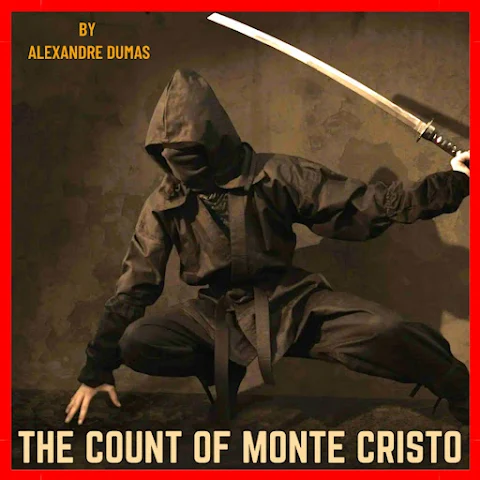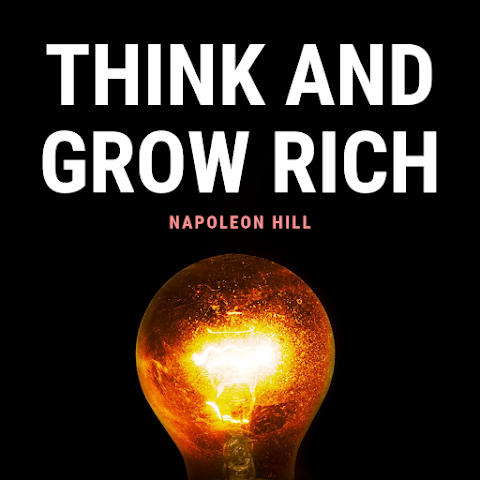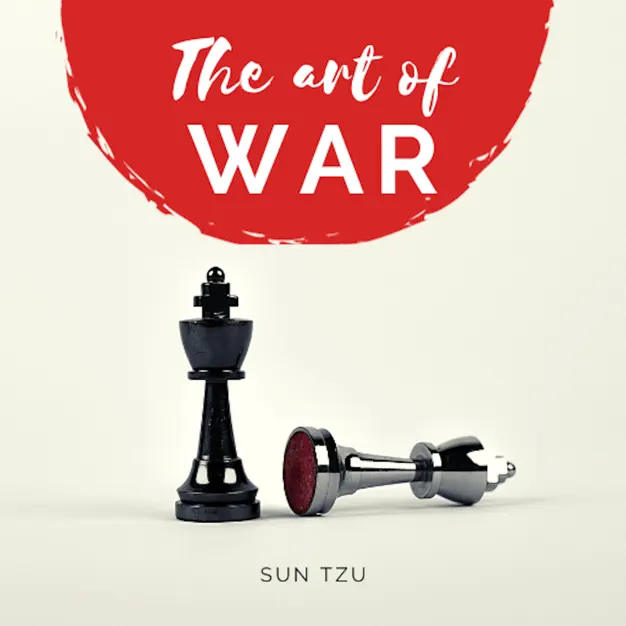Hey There, History Lovers (and Soon-to-be History Lovers)!
You know how some stories seem to capture an entire era perfectly? Well, grab a coffee (or your beverage of choice), because I'm about to take you on an incredible journey through the real-world events that shaped "The Count of Monte Cristo." Trust me, this isn't your typical boring history lesson - this is the juicy stuff that makes the book even more mind-blowing once you know about it!
Napoleon's Impact: The OG Influencer
You think social media influencers have power? Let me tell you about Napoleon Bonaparte! This guy literally reshaped Europe faster than a viral TikTok trend spreads. His policies and wars didn't just change maps - they changed how people thought about everything from government to fashion (fun fact: his wife Josephine was basically the Kim Kardashian of her time when it came to setting trends).
The Napoleon Effect
- Military Service: Getting drafted wasn't just about fighting - it was like a crash course in French culture and nationalism
- Legal System: He created the Napoleonic Code (think of it as the iOS of legal systems - everyone started copying it)
- Society Changes: Social mobility became a thing - imagine if suddenly everyone could apply for jobs previously reserved for "elite" families
- Education: Public schools became a priority (revolutionary idea at the time!)
Why This Matters for Our Story
When you're reading about Edmond Dantès climbing the social ladder as the Count, remember - this was only possible because Napoleon had shaken things up so much! Before this era, someone like Dantès could never have pulled off pretending to be nobility. It'd be like trying to fake being a celebrity in the age of Instagram - much harder than in the days before social media!
Maritime Trade: The Original World Wide Web
Okay, this is where it gets really cool. Remember how excited everyone was when the internet first let you instantly message someone across the world? In the 1800s, ships were doing the same thing - just way slower! Marseille, where our story begins, was like the Google headquarters of maritime trade.
A Day in Port Life
Picture this: You're standing on the docks of Marseille in 1815. Around you, there are:
- Sailors speaking a dozen different languages (the original international chat room)
- Ships carrying everything from spices to silk (think Amazon delivery, but with sails)
- Merchants making deals worth fortunes (basically day traders, but with actual goods)
- Spies pretending to be regular sailors (yes, just like in the movies!)
Ship Captain Status
Being a ship captain back then was like being a combo of CEO, diplomat, and adventurer. When the book mentions Dantès being promoted to captain at a young age, it's like someone becoming a tech startup CEO at 25 - impressive and slightly suspicious to the older crowd!
Listen While You Learn:
Listen on SpotifyFrance in the Early 1800s: Talk About Drama!
Imagine if Twitter existed in 1815 France - it would've been absolute chaos! The country had just gone through this wild roller coaster ride with Napoleon Bonaparte. Think about it: this guy went from being basically the king of Europe to being exiled to a tiny island, then made this incredible comeback (only to be defeated again 100 days later). It'd be like if your favorite TV show's main character got written off, came back for an amazing special episode, and then left again!
The Restoration Period: When Old Met New
After Napoleon's final exit (spoiler alert: he lost at Waterloo), France was trying to figure itself out. The old royal family (the Bourbons) came back to power, but here's the thing - you can't just hit the reset button on a country! Imagine if your town suddenly decided to go back to how things were 20 years ago. Awkward, right? That's exactly what was happening in France.
Social Classes Doing the Shuffle
This is where it gets really interesting for our boy Edmond Dantès. The whole social structure was like a game of musical chairs. You had old nobility trying to get their groove back, new rich folks from the Napoleon era trying to keep their status, and regular people just trying to survive all this drama. It's kind of like when your high school has a massive redistricting and suddenly all the social groups get mixed up!
The Mediterranean: Where All the Action Happens
Politics and Power: Game of Thrones, 1800s Edition
If you think modern politics is messy, wait till you hear about post-Napoleon France! Imagine if every single person in power was playing their own version of chess, but the board kept changing, and sometimes the pieces exploded. That's basically what was happening during the Bourbon Restoration.
The Power Players
- The Royalists: Think of them as that friend who keeps talking about how great high school was and wants everything to go back to exactly how it used to be
- The Bonapartists: The Napoleon fan club who wouldn't accept their idol was gone (like those fans who still think their favorite band will get back together)
- The Liberals: The ones saying "Hey, maybe we should try something new?" (Revolutionary concept, right?)
- The Opportunists: Those folks who somehow always end up on the winning side (we all know someone like that!)
Real Talk: The Politics Behind the Story
When Dantès gets accused of being a Bonapartist agent, it's not just some random charge. It'd be like today if someone accused you of being a spy during an election year - instant drama! The political tension was so high that even a hint of supporting the wrong side could ruin your life.
Money Matters: Banking in the 1800s
Let's talk about something we all love (or love to hate): money! The financial world of the 1800s was wild, and I mean WILD. No computers, no credit cards, just lots of paper, promises, and prayer!
Banking Without Computers (Scary, Right?)
Here's how things worked:
- Letters of Credit: Like having a really fancy IOU that worked in different countries
- Banking Houses: Family-run banks that were basically the original influencer dynasties
- Stock Exchange: Imagine Wall Street, but with more top hats and way more shouting
- International Trade: Converting money was like trying to solve a puzzle while riding a horse
Why This Matters in the Story
When the Count starts playing with the stock market to ruin Danglars, he's exploiting a system that was already pretty chaotic. It's like if someone figured out how to hack the WiFi at a coffee shop - the system had vulnerabilities built right in!
Now, let me tell you about Marseille, where our story kicks off. Picture the busiest port you can imagine, then multiply that by ten. Ships coming and going, sailors from all over the world, merchants making deals - it was basically the Internet of its time, where information (and gossip!) traveled fast.
Pirates, Politics, and Trade - Oh My!
Here's something cool: being a sailor back then was kind of like being an international spy. You had to know which flags meant trouble, which ports were safe, and who was fighting who this week. And pirates? They weren't just in movies - they were a real problem! Think about trying to do your job while knowing someone might try to steal all your stuff at any moment.
Fun Fact Time!
Did you know that the island of Monte Cristo (yep, it's a real place!) was actually believed to have hidden treasures? Pirates and smugglers used these Mediterranean islands as secret bases. When Dumas named his count after this island, he was basically saying, "This guy's got some serious secrets!"
The Prison System: Definitely Not Like Netflix Shows
Let's talk about the Château d'If - and trust me, this place makes modern prisons look like holiday resorts. Imagine being locked up in a medieval fortress surrounded by shark-infested waters (yes, actual sharks!). The prison was notorious for housing political prisoners, kind of like a 19th-century Guantanamo Bay.
Justice System? More Like "Just This" System
The legal system back then would make any modern lawyer's head explode. No Miranda rights, no phone calls, and definitely no fair trials if you were accused of political crimes. Getting arrested was like falling into a black hole - you could disappear without anyone knowing what happened to you. Scary stuff, right?
Social Life: The Original Social Network (No WiFi Required!)
Forget Instagram and Facebook - the Parisian salons were where the real social networking happened! These weren't just fancy parties; they were like a combination of LinkedIn, Twitter, and a reality TV show all rolled into one. Think of them as the ultimate offline social platform where your profile picture was your actual face, and your status updates happened in real-time conversation!
How to Go Viral in 1815: The OG Influencer's Guide
Before TikTok dances and Instagram reels, going viral meant something completely different - but honestly, maybe even more intense! Imagine trying to maintain your social status without being able to delete that embarrassing post or filter that unflattering angle. The stakes were REAL!
The social scene had its own set of unwritten rules:
- Reputation was everything (like your social media presence today, but you couldn't delete embarrassing posts!)
- Gossip spread faster than you'd think (the original viral content)
- Fashion and manners were your profile picture and bio combined
- Every party was a networking event (but with better food and worse WiFi)
Travel and Communication: When "Instant" Meant Days (Or Weeks!)
Let's appreciate for a moment how incredible it is that people managed to coordinate anything in the 1800s. No phones, no emails, no "Sorry, I'm running 10 minutes late" texts! Imagine planning a meetup where you had to commit to the time and place days or weeks in advance - and if something came up, tough luck! It's like airplane mode, but for your entire life.
The Count of Monte Cristo takes place in this wild time when "instant messaging" meant sending someone on horseback with a letter, and "read receipts" meant waiting for a reply to physically travel back to you. Talk about patience levels we can't even imagine today!
The OG Communication Methods
- Letters: Like email, but with a delivery time of days or weeks
- Messengers: Human notifications who actually ran around delivering messages
- Newspapers: Think of them as a really slow Twitter feed that everyone trusted
- Word of Mouth: The original viral marketing strategy
Plot Point Alert!
This slow communication system is crucial to the story - when Dantès is imprisoned, news travels so slowly that by the time anyone could have helped him, it's too late. Imagine trying to prove your innocence when you can't even make a phone call!
Fashion and Style: The Original Instagram Influencers
You think keeping up with today's fashion trends is tough? Let me tell you about the 1800s fashion scene! This was an era when your outfit literally told everyone your whole life story - kind of like how people today judge your whole personality based on your Instagram aesthetic.
Dress Code Drama
- Colors had meanings (like wearing the wrong team's jersey to a game, but WAY more serious)
- Fabric choices could make or break your social status (silk was basically the Supreme brand of its day)
- Accessories told everyone how rich you were (the original "flex")
- Fashion faux pas could actually ruin your reputation (no "delete post" option back then!)
The Count's Style Game
When the Count arrives in Paris with his perfect fashion sense, it's like showing up to a party where everyone's trying to be cool, but you actually ARE cool. His outfits are always on point because he knows these unwritten rules better than anyone - it's part of his revenge masterplan!
Entertainment: No Netflix, No Problem!
Before we had streaming services and social media to keep us entertained, people in the 1800s had to get creative with their fun. And trust me, they knew how to party - just in a very different way!
The Original Entertainment Options
- Opera Houses: Like going to a movie premiere, but with live drama on AND off stage
- Salons: Book clubs meets TED Talks meets dinner party
- Balls: Tinder but in person, with more dancing and less swiping
- Theater: Reality TV of its time - everyone went for the show AND the gossip
Fun Fact!
The opera scene in the book where the Count makes his grand entrance? That was like walking the red carpet at the Met Gala - everyone who mattered was there, watching and judging. Talk about pressure!
Education and Knowledge: The Power of Information
Here's something wild to think about - in an age without Google, knowing stuff was like having a superpower! The more languages you spoke, the more books you'd read, the more powerful you became. It's like having all the cheat codes to a game that everyone else is playing on hard mode.
Learning in the 1800s
- Books were expensive (imagine paying hundreds of dollars for each Google search!)
- Languages were crucial (no Google Translate to save you)
- Personal tutors were the YouTube tutorials of their day
- Knowledge was passed down through conversations and letters
Why This Matters in the Story
When Abbé Faria educates Dantès in prison, he's not just helping him pass the time - he's giving him the 19th-century equivalent of a full Google database! This knowledge becomes one of the Count's most powerful weapons in his revenge arsenal.
Conclusion: Why This All Matters
So there you have it, friends! This is the world that shaped our favorite revenge story. When you understand all these little details about life in the 1800s, "The Count of Monte Cristo" becomes even more amazing. It's like watching your favorite movie with director's commentary, but way more interesting!
Next time you're listening to the audiobook or reading along, remember - every little detail, from the way people dressed to how they sent messages, plays a crucial part in making this story work. And hey, maybe we're not so different from those 1800s folks after all - we're still gossiping, networking, and trying to figure out what to wear to make a good impression!



